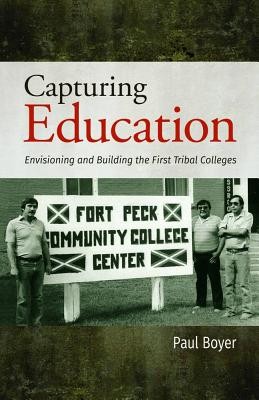
- We will send in 10–14 business days.
- Author: Paul Boyer
- Publisher: Salish Kootenai College Press
- Year: 2015
- Pages: 128
- ISBN-10: 193459413X
- ISBN-13: 9781934594131
- Format: 13.7 x 21.6 x 1 cm, minkšti viršeliai
- Language: English
- SAVE -10% with code: EXTRA
Reviews
Description
Capturing Education examines the founding of the first tribally controlled American Indian colleges in the late 1960s and early 1970s and follows their subsequent growth and development, especially in the 1980s and 1990s. Based on oral histories recorded over a twenty-year period, it documents the motivations of the movement's founders and the challenges they faced while establishing colleges on isolated and impoverished Indian reservations. Early leaders discuss the opposition they encountered from both Indians and non-Indians at a time when few people believed Indians could or should start their own colleges. The development of degree programs relevant to the practical needs of reservation communities, however, contributed to their eventual success despite such opposition. Continuing efforts to define and implement a culturally based philosophy of education are also discussed.- Author: Paul Boyer
- Publisher: Salish Kootenai College Press
- Year: 2015
- Pages: 128
- ISBN-10: 193459413X
- ISBN-13: 9781934594131
- Format: 13.7 x 21.6 x 1 cm, minkšti viršeliai
- Language: English English


Reviews